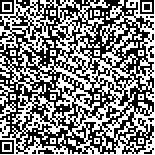| 摘要: |
| [摘要] 目的 观察益生菌治疗难治性原发免疫性血小板减少症(ITP)的疗效及对肠道菌群变化的影响。方法 将20例难治性ITP患者随机分为益生菌组和对照组,每组10例。益生菌组给予达那唑+环孢素+双歧杆菌乳杆菌三联活菌片口服。对照组给予达那唑+环孢素+维生素C片口服。治疗前及治疗8周后采血用定量酶联免疫吸附试验(ELISA)法检测肿瘤坏死因子-α(TNF-α)、白细胞介素-12(IL-12)和干扰素-γ(IFN-γ)。采集粪便16SrDNA测序分析双歧杆菌属、乳酸杆菌属、粪球菌属和大肠杆菌的丰度及肠道微生态。结果 治疗后,益生菌组血小板计数显著高于对照组(P<0.05);益生菌组厚壁菌门/拟杆菌门比值显著高于对照组(P<0.05);益生菌组乳酸杆菌属丰度及双歧杆菌属丰度均显著高于对照组(P<0.05),大肠杆菌丰度显著低于对照组(P<0.05),两组粪球菌属丰度比较差异无统计学意义(P>0.05)。益生菌组TNF-α、IL-12及IFN-γ均显著低于对照组(P<0.05)。结论 难治性ITP存在肠道菌群失调,口服益生菌治疗利于改善患者预后。 |
| 关键词: 原发免疫性血小板减少症 16SrDNA 细胞因子 益生菌 肠道菌群 |
| DOI:10.3969/j.issn.1674-3806.2022.01.14 |
| 分类号:R 558.2 |
| 基金项目: |
|
| Efficacy of probiotics in treatment of refractory primary immune thrombocytopenia and their effects on the changes of intestinal flora |
|
HUANG Xiao-chun, QIN Li-juan, MO Qiu-yu
|
|
Department of Hematology, Guilin People′s Hospital, Guangxi 541002, China
|
| Abstract: |
| [Abstract] Objective To observe the efficacy of probiotics in treatment of refractory primary immune thrombocytopenia(ITP) and their effects on the changes of intestinal flora. Methods Twenty patients with refractory ITP were randomly divided into probiotics group and control group, with 10 cases in each group. The probiotics group was given danazol+cyclosporine+Bifidobacterium Lactobacillus triple live bacteria tablets orally. The control group was given danazol+cyclosporine+vitamin C tablets orally. Blood samples were collected from the patients, and the levels of tumor necrosis factor-α(TNF-α)、interleukin-12(IL-12) and interferon-γ(IFN-γ) were determined by quantitative enzyme-linked immunosorbent assay(ELISA) method before treatment and 8 weeks after treatment. Fecal samples were collected, and the abundance of Bifidobacterium, Lactobacillus, Coprococcus and Escherichia coli was analyzed by 16SrDNA sequencing, and the intestinal microecology was analyzed. Results After treatment, the platelet count in the probiotics group was significantly higher than that in the control group(P<0.05); the ratio of Firmicutes/Bacteroidetes in the probiotics group was significantly higher than that in the control group(P<0.05); the abundance of Lactobacillus and the abundance of Bifidobacterium in the probiotics group were significantly higher than those in the control group(P<0.05); the abundance of Escherichia coli in the probiotics group was significantly lower than that in the control group(P<0.05). After treatment, there was no significant difference in the abundance of Coprococcus between the two groups(P>0.05). The levels of TNF-α, IL-12 and IFN-γ in the probiotics group were significantly lower than those in the control group(P<0.05). Conclusion There is intestinal flora imbalance in refractory ITP. Oral treatment with probiotics is conducive to improve the prognosis of the patients. |
| Key words: Primary immune thrombocytopenia(ITP) 16SrDNA Cytokine Probiotics Intestinal flora |

